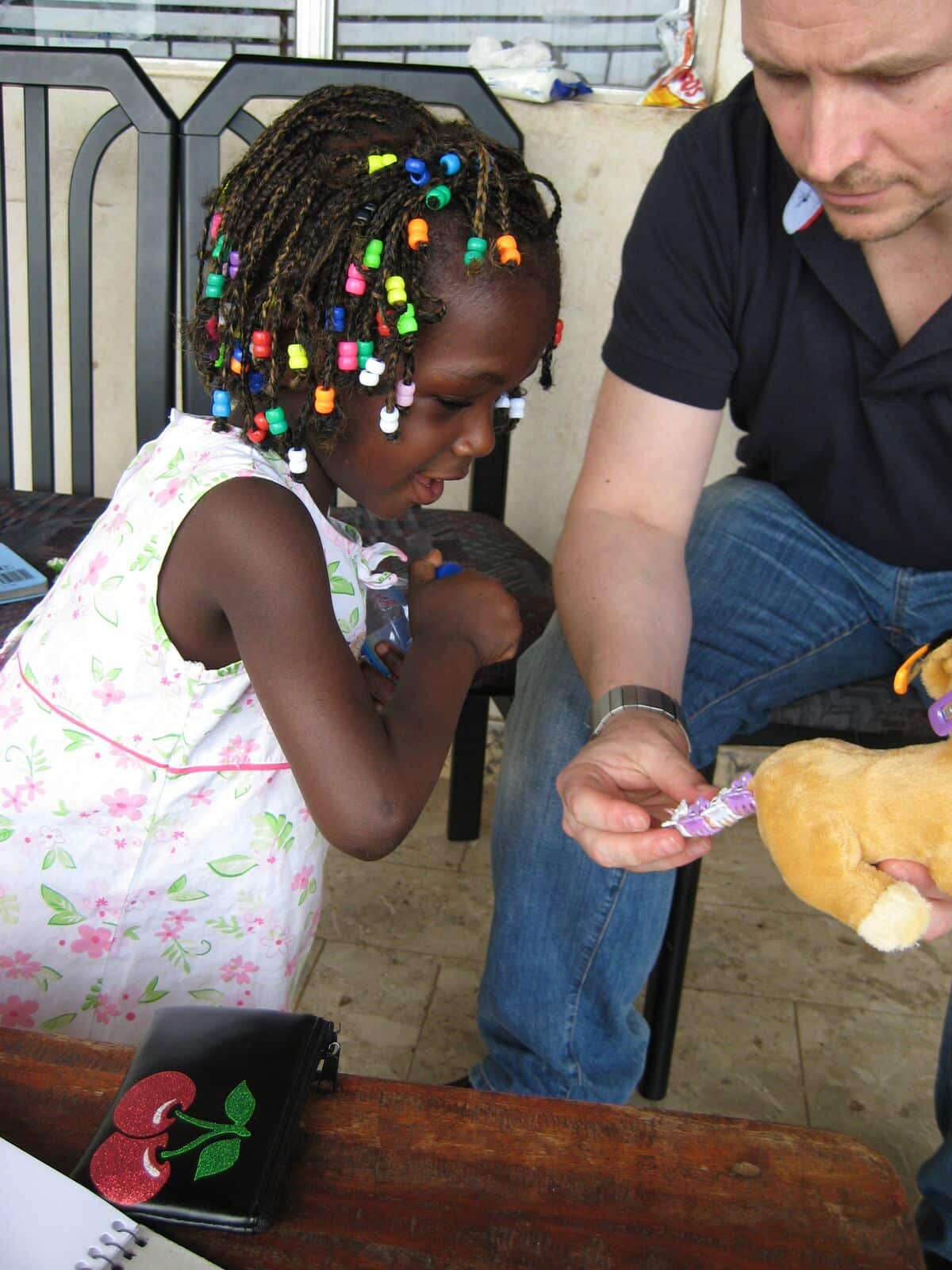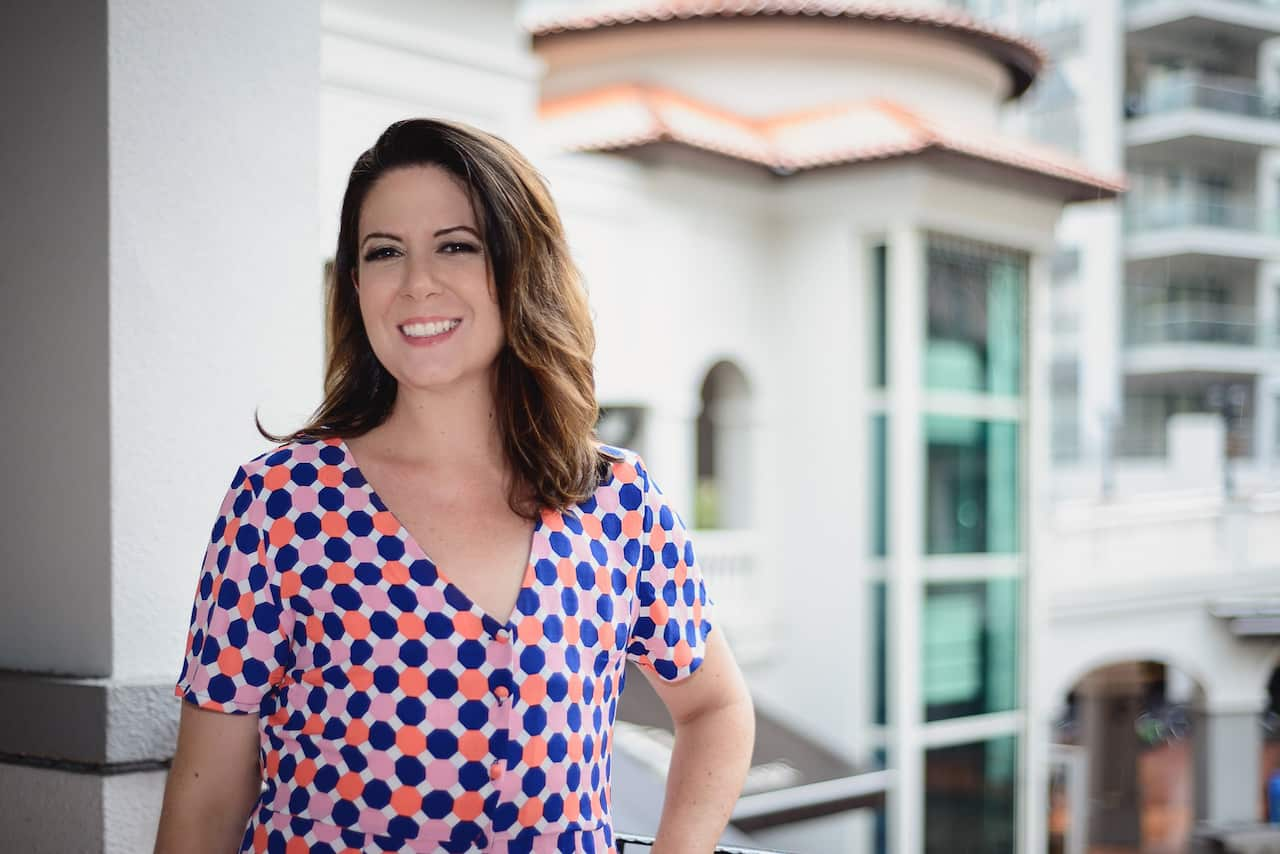It started in their birth country. We were at the airport with two children, armed with drink bottles and colouring books, attempting to explain to them what would happen next. These were children who could count the number of car rides they’d had on one hand, never mind the helicopter airport transfer they'd just enjoyed, and the 747 they were about to board for the flight "home".
Passport control. We travelled a lot in the early days and, over time, became accustomed to the circus it involved: passports, visas, adoption documents (“Do you have the originals?”), spot checks on our story to convince themselves that the children were ours (“Is this your mummy? What is her name?”). This first time, though, the officials were beaming beautiful smiles and wishing us well. “You are good Christians,” they said. “These children are so lucky. You are so, so good. May God bless you.”
And so it began. The Mother Teresa analogy very often follows the barrage of curious questions. The conversation tends to turn to whether someone could or could not adopt, whether they want to adopt. It’s like when someone says they are a vegetarian – most people automatically respond with, “I don’t eat much meat.” Or if someone says they don’t have a TV: “Yes, I don’t watch the TV much.” After the questions and personal statements of whether they could or couldn’t and want to or not, we get to summary comments. In some ways, it’s a relief – it means the curious parent of a school friend or passenger on a plane has ran out of things to sensibly ask, and hopefully also observed your increased reluctance to spill the beans on the whole story.
The Mother Teresa analogy very often follows the barrage of curious questions. The conversation tends to turn to whether someone could or could not adopt, whether they want to adopt. It’s like when someone says they are a vegetarian – most people automatically respond with, “I don’t eat much meat.” Or if someone says they don’t have a TV: “Yes, I don’t watch the TV much.” After the questions and personal statements of whether they could or couldn’t and want to or not, we get to summary comments. In some ways, it’s a relief – it means the curious parent of a school friend or passenger on a plane has ran out of things to sensibly ask, and hopefully also observed your increased reluctance to spill the beans on the whole story.

Jodie Hampshire's husband Robert Harris with their daughter. (Image: Supplied) Source: Supplied
You are so good.
Um, OK.
That statement rubs me up the wrong way. I know, absolutely know, that it is not meant to. But it does. I'll try to explain why.
From my perspective, it makes me out to be some selfless soul who sacrifices her life for the good of others. All adoptive parents have personal rationales for adopting and, while they are certainly about giving a child the love and security of a permanent family, they are usually swirled amongst adult reasons, too: I couldn't have a biological child. I fell in love with a child I met. I wanted to live a deliberately different life. I can assure you it's rarely “I wanted to be like Angelina Jolie,” just for the record. So my choice to adopt was a result of a range of reasons, but don't make me out to be some selfless soul I am not.
So my choice to adopt was a result of a range of reasons, but don't make me out to be some selfless soul I am not.

Mother of four, Jodie Hampshire, 42, often faces a barrage of personal questions around her choice to adopt. (Image: Supplied) Source: Supplied
From the perspective of our children, the implication is that they are less desirable; that it was a hard decision to "take them on" and "give them a better life". It was, in fact, the easiest decision we've ever made, and while they drive me bonkers, I think they are the most awesome children in the world. Both statements sound much like any other mother. When people make some kind of comment in the line of "you're so good" with my kids in earshot, makes me plain sad.
As an adoptive or foster parent, I guarantee you will get the You’re so good commentary. The trick is in how to deal with it.
I've muddled through a few approaches:
- Bumbling embarrassment: I don't know what you mean, I haven't done anything much... Blush, cringe, leave.
- Cranky: I don't think I'm good at all, here are all the reasons why. Self-deprecating comments. Blush, leave.
- Deflective: either onto the speaker (I’m sure you’d be a great adoptive parent too) or the children (I am the lucky one, they are the best things that have ever happened to me). Leave.
So my choice to adopt was a result of a range of reasons, but don't make me out to be some selfless soul I am not.
With some years of experience under my belt, though, I realise that what the person is really trying to say is, I support you and your family and your choices, and wish you all the best. But that all sounds a bit emo to say to a stranger or acquaintance.
Sometimes the best and most gracious response, given that most of the time the intention behind the comment is good, is to smile and say nothing. Pick your battles, my friends. This ain't one of them.
This is an extract from the book Lionheart: The Real Life Guide for Adoptive Families by Jodie Hampshire, Selina Smyth, Tammi Flinos and Robert Harris.



